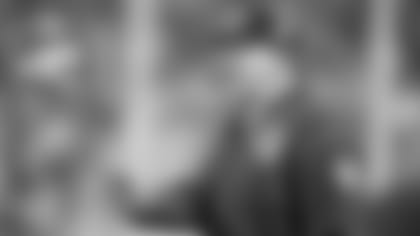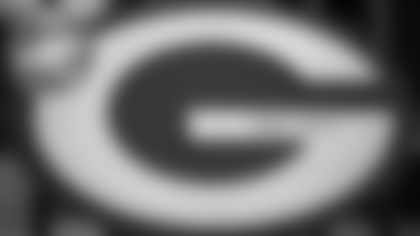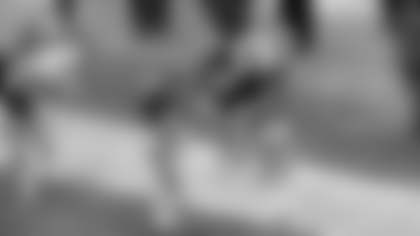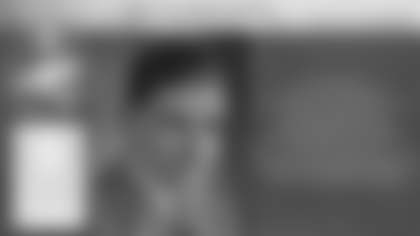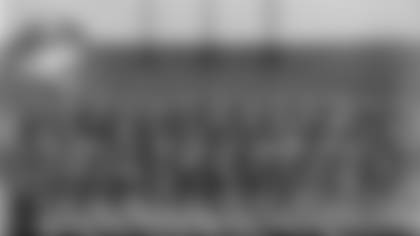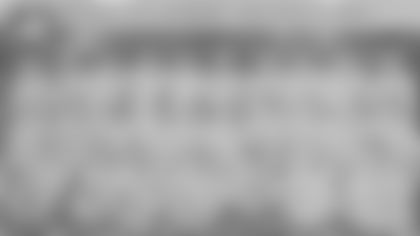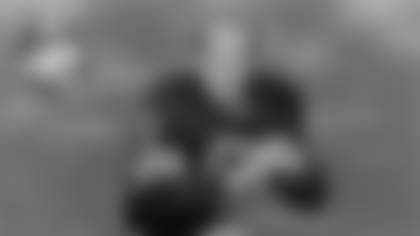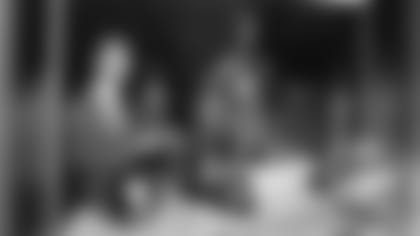Dewey from Milwaukee
When you were with The Milwaukee Journal, you reported that Washington coach Joe Gibbs had an interest in talking to the Packers about their coaching vacancy. That story seemed to die quickly. Was there any fire behind that smoke or were your sources just wrong?
Obviously, the story didn't have legs, but I believe it was written from the proper perspective and there was nothing in it that was untrue.
The story ran on Jan. 31, 1988, Super Bowl Sunday. I was in San Diego that day, covering Washington's 42-10 trouncing of Denver in game XXII. The headline on the story read: "Infante on hold until Packers check on Gibbs." My source for the story was Tom Braatz, Packers vice president of football operations and head of the coaching search, and I quoted him by name, not anonymously.
Here was my lead: "Lindy Infante, offensive coordinator of the Cleveland Browns, is expected to be named the next coach of the Green Bay Packers early this week, barring what would be a shocking post-Super Bowl development." In the next paragraph, I reported that club president Robert Parins and Braatz were in San Diego and had a second interview with Infante the previous day, spending part of the two-hour session discussing contract terms. However, Braatz also told me that Infante had not been offered the job during those talks.
The fifth paragraph read: "As bizarre as it appears on the surface, the Packers are going to wait until after today's Super Bowl to see if Joe Gibbs (who was in his seventh season as Washington's coach and about to win his second NFL title) is interested in the job."
Next, I reported Braatz had received one call, possibly two, from an unknown third party that told him Gibbs, who had one year remaining on his contract, would be interested in talking to the Packers after the Super Bowl. Additionally, I wrote that Braatz refused to elaborate about the call(s) that he had received but said he planned to stay in San Diego on Monday to see if there was genuine interest on Gibbs' part.
"If it surfaces after the game, we will pursue it," Braatz told me and I quoted him by name in the story. "If nothing surfaces, we'll continue on with the next-best situation. But we're going to wait until after the game to find out." I added that if Gibbs had no interest, the Packers would contact Infante again on Tuesday with the intention of finalizing a deal, although he had flown to Hawaii, where the Browns' staff was scheduled to coach in the Pro Bowl, following his interview with the Packers.
As it turned out, all parties vehemently denied the story after the Super Bowl, including Parins, Braatz and Gibbs.
Parins told George Sauerberg and Bud Lea of the Milwaukee Sentinel that the story made no sense to him. "I can't even visualize that I can give credence to the story to even think in those terms," he said. Braatz told Bob McGinn of the Green Bay Press-Gazette that he had been given no indication Gibbs was interested in the job. "None. Zero," Braatz told McGinn. "That was a rumor started by somebody. In fact, we (he and Parins) were both joking about it after the game yesterday. How ridiculous it was."
Gibbs also called the report "ridiculous," claiming the intermediary who supposedly called the Packers did so without his knowledge. And I quoted Gibbs to that effect in a follow-up story on Monday.
I also interviewed Braatz again for my Monday story. Considering he had told me less than 48 hours earlier that he was going to wait to see if Gibbs had actual interest in the Packers' post, he could hardly be as vehement in his denial with me as he was with others. While Braatz refused to acknowledge that he had talked to Gibbs' agent as he had indicated to me on Saturday, he admitted he had heard rumors at the Super Bowl that Gibbs was interested.
Braatz also told me that he was returning to Green Bay Monday morning, rather than spending the day in San Diego, and that he would contact Infante on Tuesday and attempt to quickly finalize a deal.
When I asked Braatz why he no longer intended to at least make contact again with Gibbs' agent, he explained: "I talked to other people who brought it to my attention that last year when (Bill) Parcells was in the Super Bowl, his agent, Robert Fraley, started the rumor that he would be interested in the Atlanta job. Joe Gibbs also has Robert Fraley. I'm not saying he started the rumor. All I'm saying is that Parcells wanted the Atlanta job, and then I don't know how it turned out, but it got sticky."
I also reported in that story that a source close to the Packers confirmed that the call to Braatz from a third party was made on Gibbs' behalf during the days before the game, despite the denials.
Not long after, I also learned from a high-ranking source in the Packers' organization that Parins had panicked after my story was published on Super Bowl morning over fear of losing a draft pick for tampering. Thus, that was the reason for the adamant denials about Braatz ever talking to Gibbs' agent, and the decision by Parins and Braatz to forego even making a phone call to the agent after the game.
That's why the story died so quickly.
What was intriguing about the entire scenario was Braatz's answer to me about the Falcons' talks with Parcells' agent. After all, it was Braatz himself who had gotten caught in the middle of the Parcells controversy almost one year earlier to the day and been warned about a tampering charge.
On Jan. 30, 1987, NFL Commissioner Pete Rozelle announced at a press conference in Honolulu before the Pro Bowl that he had informed Fraley to cease talks with the Falcons, who were interested in hiring Parcells as both coach and general manager. At the time, Parcells was five days removed from winning Super Bowl XXI with the Giants, where he only held the title of coach.
While Giants general manager George Young was calling for Rozelle to punish the Falcons for tampering, the commissioner said he had no plans to do so as long as the team followed his order and stopped its pursuit of Parcells. Rozelle added that Fraley had initiated the negotiations, not the Falcons.
Keep in mind, when talks started between Fraley and the Falcons, Braatz was still the top personnel official in their front office, although he had been stripped of his general manager title and was a month away from accepting the Packers' job offer. Rankin Smith Jr., president of the Falcons, admitted to Rozelle that Fraley had approached them around the time of the Giants' first playoff game following the 1986 season. Subsequently, Braatz admitted to Peter King of Newsday that relations between the Falcons and Giants had become "very strained."
Here's something else that I can't swear to because it's only a distant memory, but I believe by the time I reported on the Gibbs' story that I had heard – maybe at the recent Senior Bowl – despite Washington's success, the relationship between Gibbs and general manager Bobby Beathard, who shared power in Washington, was not as perfect as it might have seemed on the outside.
And as it turned out, 16 months later, Beathard abruptly resigned as Washington's GM at age 52. By all accounts, he quit because he was exhausted over his disagreements with Gibbs on player personnel. A year after that, Parcells also quit the Giants after winning a second Super Bowl, partly because of differences with Young. All of which makes one wonder: What did Fraley know that the public didn't know about his two clients, Gibbs and Parcells, and their power struggles, when he contacted the Packers and Falcons over the previous three years?
This has been a longwinded answer – sorry – but here's some more background.
Braatz, who died in 2018, was always good to me as far as sharing information going back to his days in Atlanta, whether it be straightforward on-the-record answers or off-the-record background. And he had been extremely helpful throughout his whirlwind search for Forrest Gregg's replacement.
The day Gregg resigned (Jan. 13, 1988) Braatz talked to me via phone from Honolulu, where he was scouting the Hula Bowl. The next week, I went to the Senior Bowl in Mobile, where Braatz interviewed many of the more than 15 or so candidates he talked to about the job; and from there, I went to San Diego to cover the pre-Super Bowl hype while Braatz returned to Green Bay with more interviews on his schedule. Throughout the entire process – during our talks in Mobile and then my nightly phone calls to him at his home in Green Bay early in Super Bowl week – he basically kept me updated on his interviews and the progress of his search.
So quite frankly, I was not upset with him for repudiating my story, especially when I learned about Parins' reaction to it. In hindsight, I also wonder if Rozelle didn't encounter Parins and Braatz in the press box at San Diego's Jack Murphy Stadium before the Super Bowl kickoff and sternly warn them to either forget about contacting Gibbs' agent on Monday or risk losing a high draft pick, just as he had threatened the Falcons a year earlier.
By the way, if you're curious, here are the coaches that I reported on after they had interviewed or at least been approached by Braatz about the job in addition to Infante: Packers defensive coordinator Dick Modzelewski, Michigan State coach George Perles, San Francisco receivers coach Dennis Green, Toronto Argonauts coach Bob O'Billovich, Los Angeles Rams quarterbacks coach Dick Coury, Atlanta receivers coach Jimmy Raye, University of Pittsburgh coach Mike Gottfried, University of South Carolina coach Joe Morrison, former University of California and Illinois head coach Mike White, San Francisco defensive coordinator George Seifert, Pittsburgh defensive coordinator Tony Dungy, Denver offensive coordinator Mike Shanahan, Dallas running backs coach Al Lavan, Chicago backfield coach Johnny Roland and Minnesota offensive coordinator Bob Schnelker.
That's 16 and Braatz told me near the end of the search that he had interviewed approximately 15 candidates.
Chuck from New Berlin, WI
In Chapter 2 of your book "Mudbaths & Bloodbaths," you mentioned the first public spat between Papa Bear (George Halas) and Curly (Lambeau) was when Joe LaFleur asked for his release from the Bears so he could play for the Packers due to his business interests in Escanaba, Mich. The LaFleur to Michigan reference piqued my curiosity. Is there any connection to ML?
Good question considering Matt's ties to Michigan, although mostly lower Michigan. He was born in Mount Pleasant, Mich.; played college ball at Western Michigan and Saginaw Valley State; and started his coaching career at three different stops in Michigan: Saginaw Valley, Central Michigan and Northern Michigan, which is located in the Upper Peninsula a little more than 60 miles from Escanaba.
Joe LaFleur, according to Total Football: The Official Encyclopedia of the National Football League, was born in De Pere, Wis., in 1896, went to high school in Escanaba, and played college ball at St. Norbert and Marquette. He was credited with playing for three years with the Bears from 1922-24.
Jason Wahlers, our vice president of communications, asked Matt about Joe and relayed to me that Matt was not familiar with the name.
Note to readers: The plan now thatmy book is finishedis to resume doing more Q&As with fans. While the questions have piled up in the mbx.history inbox, many of them don't include the city or town where the sender lives. Please include it with your name in the future and if you didn't do it previously feel free to resubmit your questions.



